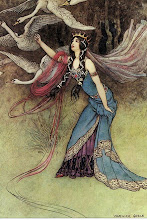 A few memoirs have crossed my desk this year (which is a fancy way to say, they’ve gathered dust on my night table until I read them) – Mary Karr’s Lit, Mennonite in a Little Black Dress by Rhoda Janzen. Oh, and the crown princess of the publishing world, Eat, Pray, Love. Memoir is such an alluring genre because it makes life seem rational, as though all the crazy things that happen to a person have a perfectly shaped narrative arc, if only you have eyes to see it. It makes me want to write a memoir to have the experience of stuffing my life into an outline like that. Of course I know enough about writing to be able to see behind the curtain – that polished surface is artificially applied. When you have to shape a story into chapters, paragraphs, and conventional sentences , the rough edges come away. Nothing is as civilizing as grammar.
A few memoirs have crossed my desk this year (which is a fancy way to say, they’ve gathered dust on my night table until I read them) – Mary Karr’s Lit, Mennonite in a Little Black Dress by Rhoda Janzen. Oh, and the crown princess of the publishing world, Eat, Pray, Love. Memoir is such an alluring genre because it makes life seem rational, as though all the crazy things that happen to a person have a perfectly shaped narrative arc, if only you have eyes to see it. It makes me want to write a memoir to have the experience of stuffing my life into an outline like that. Of course I know enough about writing to be able to see behind the curtain – that polished surface is artificially applied. When you have to shape a story into chapters, paragraphs, and conventional sentences , the rough edges come away. Nothing is as civilizing as grammar.Wouldn’t it be a treat to read a book of your life that explained what it was all about? The influence of your class and ancestry would be laid out as a clear jumping-off point, followed by a sensitive parsing of your earliest memories and your formative school experiences. Your early choices would all begin to make sense, and the later preoccupations emerge as deliberate, not random as they seemed at the time. When you were eighteen and you imagined that if your boyfriend and your cat were both tied to the railroad track and you could only save one, you’d save your cat – that daydream was actually a watershed epiphany.
I eat up the passages where memoirists explain away their parents as if they were characters in a novel. They see into their parents young-adult minds – they know exactly what Mom and Dad were thinking when they met, married, moved to that crazy place. This has to be the biggest fiction at work in memoir – can these writers really encapsulate so blithely these personalities that existed for them a priori? Do they really wake up as adults and get the whole story of the aether from which they were sprung? As much as I love the fantasy, and would love to bluster through my own version of it, it smells funny to me.
Why do people write these things? The probably want coherent spiel to present to the world – “This is my story and I’m sticking to it.” What a job well done, this dredging up everything you can remember and sealing it up in clean typeface between two covers. Spit-spot, that’s that – on to the next.
The most productive reason I can see for mining the past -- especially childhood, education, the family – is to sift through the debris looking for parenting tips. If you can figure out exactly what happened and where things went wrong (if they did), then you can avoid repeating history for your own kids. If you can remember what the world looked like through the lens of third grade, you can make the way easier for your daughter and give her everything she needs to succeed and be happy beyond her wildest dreams. Of course there is a catch – Mother Nature has made sure that our children are like us, but not exactly like us. They are different animals, and our cats and boyfriends may not have any relevance to their dilemmas at all.
The imp of the perverse makes me want to scramble those neat memoirs, to muddle their tidy conclusions and rain on their sunny, last-chapter parades. What if we told the crazy, chaotic stories, the ones that make no sense, and shone a light into the blind allies of experience instead of sticking to the main road? Not everything can be explained. There are loose ends and extraneous characters all over the narrative. There is no easy closure, even when the life is over, but a constant dialog. Maybe if you throw in all the rough stuff, and avoid smugness in your conclusions, your memoir will be more revealing and more useful. Maybe this is true of all writing. I am not smug as I come to this conclusion.





No comments:
Post a Comment